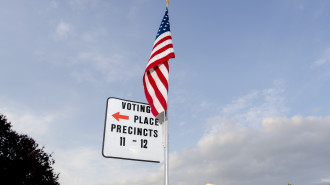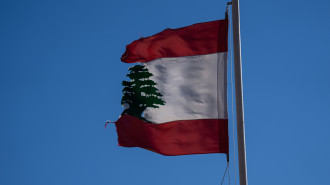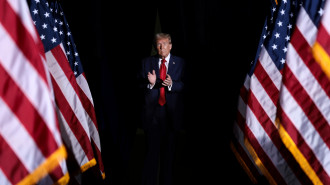
What Italy's Mattei Plan could mean for North Africa

Enrico Mattei was a leading figure in post-war Italy who went down in history for relaunching the Italian petroleum agency Agip, founded by Benito Mussolini, into state oil giant ENI (National Fuel Trust).
A partisan leader and a Christian Democracy (Democrazia Cristiana) MP, he turned ENI into a global player that broke up the oligopoly of the world’s largest energy companies dominated by the UK, the US, the Netherlands, France, and Belgium.
Mattei secured ENI contracts across the Middle East, the Gulf, and Africa, treating countries as equals with 50/50 cuts of their profits from oil. As a result, he drew the ire of rival energy nations and made powerful enemies.
It is not surprising, therefore, that Italian Prime Minister Giorgia Meloni would choose Mattei’s name for her government’s new strategy for Africa, officially announced at the beginning of 2024.
Part of a long-term vision to reshape Italy’s foreign policy strategy in the African continent, the Mattei Plan is ambitious and could see billions invested in partner nations.
But beyond evoking Italy’s former soft power and influence on the global stage, what does it entail, and how will it impact the countries targeted?
The Mattei Plan beyond nostalgia
The Mattei Plan will initially focus on nine pilot projects across Mozambique, Tunisia, Morocco, Egypt, Algeria, and the Democratic Republic of Congo, and includes five key pillars of education and training, agriculture, health, energy, and water. Beyond this, however, details remain scarce.
“We still do not have many details of what the Mattei Plan will look like. The plan was presented in January, during the Italy-Africa summit, a steering committee was gathered, in addition to the legislative tools to define the structure of the plan,” Aldo Liga, a Research Fellow for the Middle East and Africa at ISPI (Institute for the Studies of International Politics) told The New Arab.
“However, the Mattei Plan so far seems to be a way to repack and rebrand the Italian approach to international cooperation and development, also seen by the fact that Libya, recently visited by PM Giorgia Meloni, is not one of the countries included in the plan.”
"Italy's soft power has decreased. While it is true that projects of cooperation in sports, research, university, and agriculture will be part of the Mattei Plan, we have seen that ENI defines Italy's foreign policy historically"
Meloni’s Libya visit in early May seemed to be more connected to expanding Rome’s plans of pushing back migrants in cooperation with the rival UN-supported Government of National Unity (GNU) in Tripoli, led by Abdul Hamid al-Dbeibeh, and the National Stability Government in Benghazi, led by Osama Saad Hammad Saleh and backed by General Khalifa Haftar.
“The relationship between Italy and Libya is a historical one. Italian governments have pushed for the rehabilitation of Libya on the international stage in the early 2000s and have always tried to have a role after the 2011 revolution,” Liga added.
“There has been strong action on the migratory side and several economic interests, mainly in the energy sector. Libyan gas exports, almost in their entirety, are directed to Italy, while ENI produces electricity which is then distributed across Libyan electric networks.”
The Russian invasion of Ukraine forced Italy, like other European nations, to decrease its dependence on Moscow’s gas, pushing the country into further developing its energy relationships with Libya and other countries in the region, like Egypt.
|
|
ENI's role in Italian foreign policy
There are several key issues at stake in the Mattei Plan, with analysts raising questions about ENI’s role in the strategy and its impact on migration, climate change, as well as the historic power imbalance between Italy and its partners in the project.
“Italy’s soft power has decreased. While it is true that projects of cooperation in sports, research, university, and agriculture will be part of the Mattei Plan, we have seen that ENI defines Italy’s foreign policy historically,” Italian-Tunisian journalist Leila Belhadj Mohamed told The New Arab.
“ENI is one of the global players in Oil and Gas, alongside Total, and is monopolising Africa. In Pemba, Mozambique the Eni-Total gas plant is responsible for emissions calculated to surpass French yearly emissions by five times.”
As foreign minister until 2022, Luigi Di Maio’s trips to the Middle East after Russia’s invasion of Ukraine were often accompanied by ENI managers, proof of the fossil fuel giant’s political influence, Mohamed says.
"The fact that our only interest seems to be to reduce migration not only shows a general lack of empathy, but in the long term anti-migration policies risk jeopardising the very base of the relationships between North Africa and Italy"
This trend has continued since Meloni was appointed prime minister in 2022. “When it comes to deals between the Global North and Global South countries, these are never between equal actors,” added Mohamed.
“There is always a stronger actor, a European one in this case, and on the other side we mainly have autocracies that to keep their power over their people, decreasing public debt, etc…accept a typology of investments that is counterproductive and has the main focus of trying to manage migratory flows.”
Italy has been unable to maintain its historic relationships in the region, despite being one of the closest European countries to North Africa, the journalist says, and has failed to manage its ties following the Arab Spring revolutions that deposed Ben Ali, Hosni Mubarak, and Muammar Gaddafi.
“There is a lack of vision, while during Italy’s First Republic, politicians, regardless of their political alignment, were able to find the most advantageous positioning for Italy,” Mohamed says.
What next for the Mattei Plan?
“In terms of convening power regarding the Italy-Africa Summit and the Italian, European, and African partners involved, I believe it is possible to give a positive evaluation. However, this also raises the stakes,” Lorena Stella Martini, Policy Advisor in Foreign Policy at ECCO, the Italian climate-focused think tank, told The New Arab.
“Four months after the Italy-Africa Summit we still have to understand what this will entail beyond single projects, like the one announced with Kenya a few days ago (focused on biofuel production).”
Martini observes that while single initiatives and projects have been announced and pinpointed by Meloni and her ministers during visits to African countries, a strategic framework for the plan is still absent.
“The Mattei Plan is intended, according to what the government is saying, as a response to the migratory matter. For this reason, the absence of a focus on climate in the plan has an additional value,” Martini adds.
“Following Cop28 and Italy’s commitments, we would have expected that this would have been reflected in the plan. There is a tendency to talk about climate only in contexts like the Cop, not only when it comes to Africa, but with the whole Italian foreign policy lacking a collective and strategic vision on climate.”
|
|
The nexus between migration and climate change, and the rise of climate migration, is an element rarely discussed in the Global North. Moreover, when it comes to far-right parties there is often climate change denial, or downplaying the issue, as part of ongoing ‘culture wars’.
A recent investigation, Desert Dumps, published in May by different international media, including the Italian IRPI Media, shows how clandestine pushbacks of African migrants from Mauritania, Morocco, and Tunisia in the Sahara desert have become part of a framework of European policies which aim to turn North Africa into a hostile border outside of Europe for African migrants.
While the full extent of the Mattei Plan is still to be fully grasped, this form of migration management could be part of it.
“Migration is not our tragedy, but rather an issue that we are unable to manage. It is instead a tragedy for African countries,” researcher Aldo Liga said.
“The fact that our only interest seems to be to reduce migration not only shows a general lack of empathy, but in the long term anti-migration policies risk jeopardising the very base of the relationships between North Africa and Italy.”
Angelo Boccato is a London-based freelance journalist. His work has appeared in publications like the Columbia Journalism Review, The Independent, and Open Democracy. He co-hosts the podcast Post Brexit News Explosion
Follow him on X: @Ang_Bok


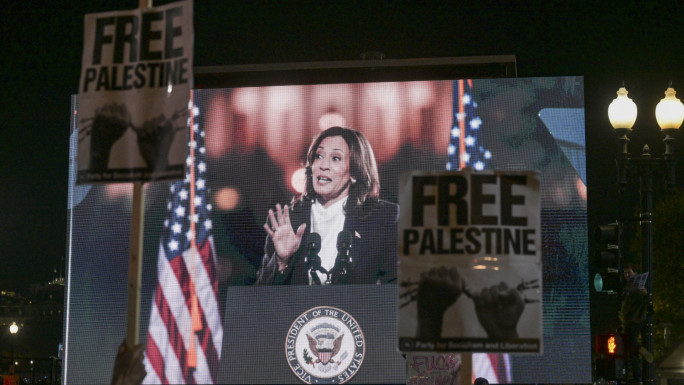

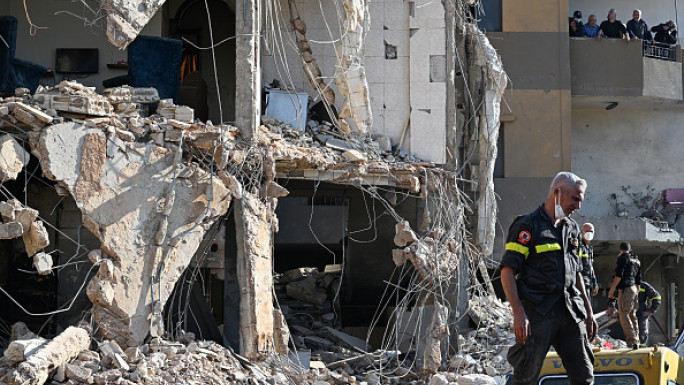
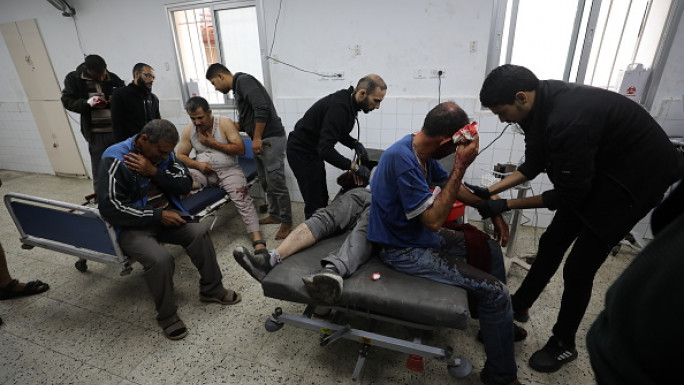
 Follow the Middle East's top stories in English at The New Arab on Google News
Follow the Middle East's top stories in English at The New Arab on Google News
